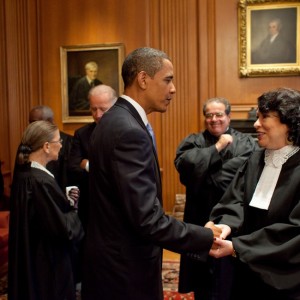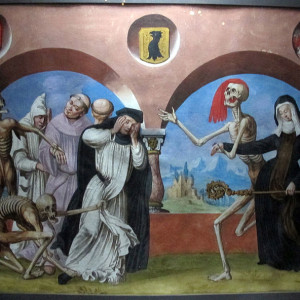“Are you going to Heaven?” “I think so. After all, I’m basically a good person.” Like me, you’ve probably heard versions of this conversation countless times. It relies on a simple but attractive theological premise: since you’re basically a good person, it would be unjust to send you to Hell; therefore, you’ll be in Heaven… Continue reading Will “Basically Good People” Be Saved?
Category: Uncategorized
Did Calvin Deny Christ’s Sinlessness?
John Calvin taught that concupiscence, our post-Fall inclination towards sin, was itself sinful. He went so far as to say that man was only concupiscence. These views don’t square well with the Incarnation, the idea that Jesus Christ became fully man, but without sinning. Perhaps it is unsurprising, then, that Calvin’s views led him to functionally deny Christ’s sinlessness, particularly at the moment when He was at prayer in the Garden. The broader question: was Calvin’s heresy in spite of his Reformed theology, or because of it?
7 Mysteries of the Faith Unlocked by the Eucharist
The scroll and seven seals of the Book of Revelation couldn’t be opened without the Lamb standing as though slain, the Eucharistic Christ. Here are seven other mysteries of the faith that we need the Eucharist to unlock: (1) the New Covenant; (2) the Old Covenant; (3) the Mass; (4) Early Christianity; (5) the Church; (6) the lives of the Saints; and (7) your own spiritual life.
Humbled by Greatness: the Soul of Creatureliness
“This entire dynamic of goodness, approval, and reception of praise lies at the heart of our relationship with God. For in heaven, […] God showers us with praise. “Well done, my good and faithful servants” (Mt 25:23). “Come, O blessed of my Father” (Mt 25:34). In this heavenly experience, the blessed responds with gratitude. The saved creature graciously receives the divine accolade, expressing thanks. The humility of creature permits thanksgiving, and in giving thanks the creature reaffirms its humility. ” – Guest post by Matthew Rensch.
Why “The Lord will Fight for You, You Have Only to be Still” is Bad Advice
In Exodus 14:13-14, Moses says to the Israelites, “Fear not, stand firm, and see the salvation of the Lord, which he will work for you today; for the Egyptians whom you see today, you shall never see again. The Lord will fight for you, and you have only to be still.”
It’s a famous rallying cry, popularized on everything from t-shirts to non-denominational blogs as a way of living out “faith alone.” But there’s a problem: Moses’ plan is a bad plan, and God corrects him for it.
Before You Condemn the Wandering Jews…
This Sunday, you’ll hear the wander Jews in the desert announce their preference for the security of slavery in Egypt over the uncertainty of following Moses (and God) in the Exodus, and you’ll hear the followers of Jesus in John 6 prefer free bread over saving truths. It’s easy to condemn these people, but are we really so different?
No, the Supreme Court Didn’t Just Legalize Gay Marriage.
One of the biggest news stories this summer has been the Supreme Court’s 5-4 decision last month in Obergefell v. Hodges which both declared gay marriage legal, and a constitutional right. Given this, both fans and opponents of the ruling have spoken of it as “legalizing” gay marriage nationwide. But it hasn’t. And it hasn’t, because it can’t, because the Supreme Court doesn’t have the power to do what it claims to have done.
Can Non-Christians Be Saved?
Four questions routinely arise about the Church’s view of the possibility of salvation for those outside of Her ranks:
1. Is Baptism necessary for salvation?
2. Are all of the non-baptized damned?
3. If the non-baptized can be saved, why share the Gospel?
4. Has the Catholic Church changed her answer to these prior three questions?
To understand how the Church can simultaneously hold that Baptism is necessary for salvation and that those can be saved who have never been Baptized, we’ve got to consider two things: how to get to Heaven, and how to get to Hell.
Can God Be Known?
Can we actually know anything about God? This is one of the most fundamental questions, and many people, particularly agnostics, will say “no.” The argument tends to go something like this: God, if there is a God, is so far removed from human experience and knowledge that there’s nothing that we can say about Him (or Her… Continue reading Can God Be Known?
3 Falsehoods About the Ten Commandments
“You shall not bear false witness against your neighbor.” Depending on who’s counting, that’s the Eighth or Ninth of the Ten Commandments. Either way, it’s part of the Ten Commandments, which makes it both ironic and unfortunate that so many falsehoods are spread about the Catholic Church and the Ten Commandments. Here are three that you might… Continue reading 3 Falsehoods About the Ten Commandments









